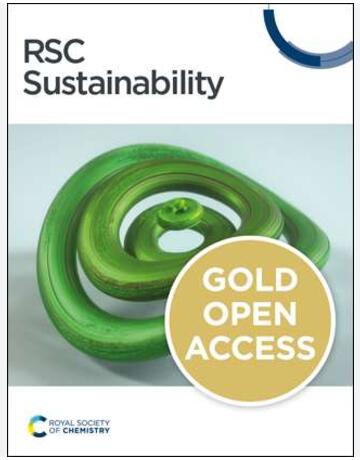展望未来交通:以福祉为导向的方法
IF 3.3
3区 环境科学与生态学
Q2 ENVIRONMENTAL SCIENCES
引用次数: 0
摘要
流动性是日常生活的重要组成部分,对人类福祉有重大影响。了解这种关系对于塑造未来的交通轨迹至关重要,而以往的研究往往忽视了这种联系。本研究探讨了移动性与幸福感之间的复杂关系,并提出了移动性未来的整体框架,优先考虑个人和社会的幸福感。这项研究的动机源于人们日益需要在交通技术进步与不同人群的福祉之间取得平衡,尤其是随着自动驾驶汽车和智能交通解决方案等创新技术的出现,交通领域也在不断发展。我们采用文献计量学方法,分析了 53588 篇学术文章,以确定与交通和福祉相关的关键主题和研究趋势。本研究利用卢万模块化最大化算法将这些文章归类为主题群组,该算法有助于根据引用模式形成具有凝聚力的群组。我们的研究结果强调了流动性对身体、精神、心理、经济和社会福祉的重大影响。建议的框架有四大支柱:车辆、基础设施和环境、流动性利益相关者以及政策。该框架强调了机构和个人行动之间合作的重要性,以塑造一个技术先进、对社会负责、有利于提高生活质量的未来交通环境。本文章由计算机程序翻译,如有差异,请以英文原文为准。
Envisioning the Future of Mobility: A Well-Being-Oriented Approach
Mobility, a vital part of daily life, significantly impacts human well-being. Understanding this relationship is crucial for shaping the future trajectory of mobility, a connection often overlooked in previous research. This study explores the complex relationship between mobility and well-being and proposes a holistic framework for mobility’s future, prioritizing individual and societal well-being. The motivation for this research stems from the growing need to balance technological advancements in transportation with the well-being of diverse populations, especially as the mobility landscape evolves with innovations like autonomous vehicles and intelligent mobility solutions. We employ bibliometric methods, analyzing 53,588 academic articles to identify key themes and research trends related to mobility and well-being. This study categorizes these articles into thematic clusters using the Louvain modularity maximization algorithm, which facilitates the formation of cohesive groups based on citation patterns. Our findings underline the significant impact of mobility on physical, mental, psychological, financial, and social well-being. The proposed framework features four pillars: vehicle, infrastructure and environment, mobility stakeholders, and policy. This framework underscores the importance of collaboration between institutional and individual actions in shaping a future mobility landscape that is technologically advanced, socially responsible, and conducive to an improved quality of life.
求助全文
通过发布文献求助,成功后即可免费获取论文全文。
去求助
来源期刊

Sustainability
ENVIRONMENTAL SCIENCES-ENVIRONMENTAL SCIENCES
CiteScore
6.80
自引率
20.50%
发文量
14120
审稿时长
17.72 days
期刊介绍:
Sustainability (ISSN 2071-1050) is an international and cross-disciplinary scholarly, open access journal of environmental, cultural, economic and social sustainability of human beings, which provides an advanced forum for studies related to sustainability and sustainable development. It publishes reviews, regular research papers, communications and short notes, and there is no restriction on the length of the papers. Our aim is to encourage scientists to publish their experimental and theoretical research relating to natural sciences, social sciences and humanities in as much detail as possible in order to promote scientific predictions and impact assessments of global change and development. Full experimental and methodical details must be provided so that the results can be reproduced.
 求助内容:
求助内容: 应助结果提醒方式:
应助结果提醒方式:


